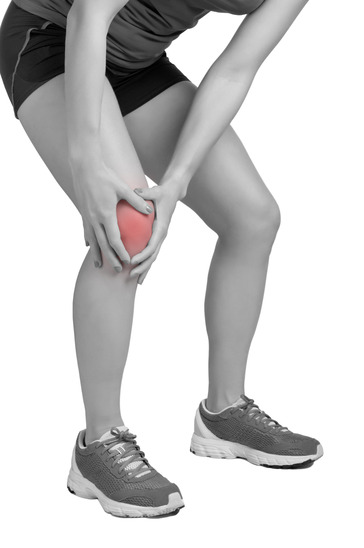People say that when your knee health goes down the drain, so does everything else. Knee injuries are painful and debilitating. We rely on our knees for walking, standing, running, and just about any other movement; so, it is important to take precautions when doing anything that involves your knees.
What are some of the most common causes of knee pain? It’s usually due to two reasons: direct blows to the knees and sudden movements beyond a knee’s normal range of motion.
Often knees receive abuse slowly over time. Severe knee injuries include bone bruises and damage to the cartilage or ligament. Knee injuries typically occur when playing sports or exercising, and due to old age.
Treatment for knee pain depends on the cause and gravity of the damage done to the knee. Doctors often prescribe medication to relieve pain and to treat underlying conditions such as rheumatoid arthritis or gout. Over the counter medication such as glucosamine and chondroitin are not prescription required, and are becoming more popular alternatives.
Therapy is often the next recommended form of treatment. There are two types of therapy for knees: physical therapy and orthotics/bracing therapy.
Physical therapy focuses on balance and strengthening the muscles around your knee. This process is often slow, but highly effective. Orthotics and bracing therapy use arch support to transfer pressure away from the side of the knee, while braces protect and support the knee.
Aside from medication and therapy, Corticosteroids and Hyaluronic acid injections may be beneficial for a knee injury. Corticosteroids are directly injected into a patient’s knee joint to reduce symptoms of arthritis and pain. Hyaluronic acid is a fluid found in healthy knee joints. It can also be injected into a patient’s knee, to reduce pain, provide lubrication to the joint, and reduce inflammation.
Surgery is a final, and sometimes the only option, for knee pain. Types of surgery include arthroscopic surgery, partial knee replacement surgery, and total knee replacement surgery.
Keep the following tips in mind if you or a loved one experiences a knee injury:
• Elevating the knee reduces swelling
• Compression prevents fluid build up
• Ice reduces pain and inflection
The most important thing one can do when experiencing knee pain is to rest in order to prevent further damage.
Comments, questions, or concerns? Leave a message in the comment box below or by clicking on our social media pages: Twitter or Facebook.



